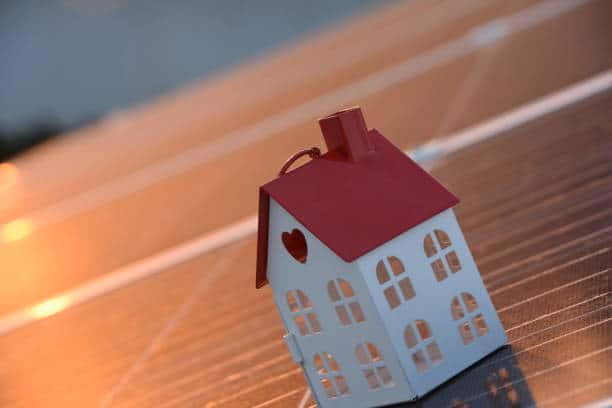
Energy-efficient real estate is becoming increasingly popular among investors, homeowners, and real estate agents. This trend is driven by a growing awareness of the environmental impact of traditional building practices and the potential for significant cost savings. In this article, we will explore the benefits of investing in energy-efficient real estate, including financial advantages, environmental benefits, and improved quality of life. We will also discuss investment strategies and provide examples of successful energy-efficient real estate projects.
Financial Benefits of Energy-Efficient Real Estate
One of the primary reasons investors are drawn to energy-efficient real estate is the potential for significant financial savings. These savings can come in several forms:
- Lower utility bills: Energy-efficient homes typically use less energy for heating, cooling, and lighting, resulting in lower utility bills for homeowners.
- Increased property value: As demand for energy-efficient homes grows, properties with energy-saving features are likely to appreciate in value more quickly than traditional homes.
- Tax incentives and rebates: Many local, state, and federal governments offer tax incentives and rebates for energy-efficient home improvements and new construction.
- Lower maintenance costs: Energy-efficient homes often require less maintenance due to the use of high-quality, durable materials and systems.
For example, a study by the National Association of Home Builders found that homebuyers are willing to pay an additional $10,732 upfront for a home that will save them $1,000 per year in utility costs. This demonstrates the strong demand for energy-efficient properties and the potential for increased property values.
Environmental Benefits of Energy-Efficient Real Estate
Investing in energy-efficient real estate is not only financially advantageous but also environmentally responsible. Energy-efficient homes have a smaller carbon footprint and contribute to a more sustainable future. Some of the key environmental benefits include:
- Reduced greenhouse gas emissions: Energy-efficient homes produce fewer greenhouse gas emissions due to their reduced energy consumption.
- Conservation of natural resources: By using less energy, energy-efficient homes help conserve valuable natural resources such as fossil fuels.
- Reduced waste: Energy-efficient construction practices often involve the use of recycled materials and produce less waste during the building process.
- Improved air quality: Energy-efficient homes often have better indoor air quality due to improved ventilation systems and the use of low-VOC materials.
By investing in energy-efficient real estate, investors can contribute to a more sustainable future while also enjoying financial benefits.
Improved Quality of Life in Energy-Efficient Homes
Energy-efficient homes offer a higher quality of life for their occupants. Some of the key factors contributing to this improved quality of life include:
- Comfort: Energy-efficient homes are often more comfortable due to better insulation, air sealing, and temperature control.
- Health: Improved indoor air quality and reduced exposure to allergens and pollutants can lead to better health for occupants.
- Peace and quiet: Energy-efficient homes often have better soundproofing, resulting in a quieter living environment.
- Lower financial stress: Reduced utility bills and maintenance costs can ease financial stress for homeowners.
These factors can make energy-efficient homes more attractive to potential buyers, increasing their marketability and resale value.
Investment Strategies for Energy-Efficient Real Estate
There are several investment strategies that can be employed when investing in energy-efficient real estate:
- Buy and hold: Purchase energy-efficient properties and hold them for long-term appreciation and rental income.
- Fix and flip: Acquire traditional properties, make energy-efficient upgrades, and sell them for a profit.
- New construction: Invest in the development of new energy-efficient homes or multi-family properties.
- Green property management: Implement energy-efficient upgrades and practices in existing rental properties to increase their value and appeal to eco-conscious tenants.
By employing these strategies, investors can capitalize on the growing demand for energy-efficient real estate and enjoy the financial, environmental, and quality of life benefits it offers.
Case Studies and Examples of Energy-Efficient Real Estate Success
There are numerous examples of successful energy-efficient real estate projects across the United States. Some notable examples include:
- The Bullitt Center in Seattle, Washington: This commercial building is considered one of the greenest buildings in the world, generating more energy than it consumes and featuring a range of innovative sustainable design elements.
- The Passive House Institute US (PHIUS) Certified Projects: PHIUS has certified over 1,200 residential and commercial projects across the United States, all of which meet rigorous energy efficiency standards.
- LEED-certified buildings: The U.S. Green Building Council’s Leadership in Energy and Environmental Design (LEED) certification program has certified over 80,000 projects worldwide, including many in the United States.
These examples demonstrate the growing interest in and success of energy-efficient real estate projects, both in the residential and commercial sectors.
Conclusion
Investing in energy-efficient real estate offers numerous benefits for investors, homeowners, and real estate agents. Financial advantages include lower utility bills, increased property values, tax incentives, and lower maintenance costs. Environmental benefits include reduced greenhouse gas emissions, conservation of natural resources, reduced waste, and improved air quality. Energy-efficient homes also provide an improved quality of life for occupants, with increased comfort, better health, and reduced financial stress. By employing investment strategies such as buy and hold, fix and flip, new construction, and green property management, investors can capitalize on the growing demand for energy-efficient real estate and contribute to a more sustainable future.
Leave a Reply